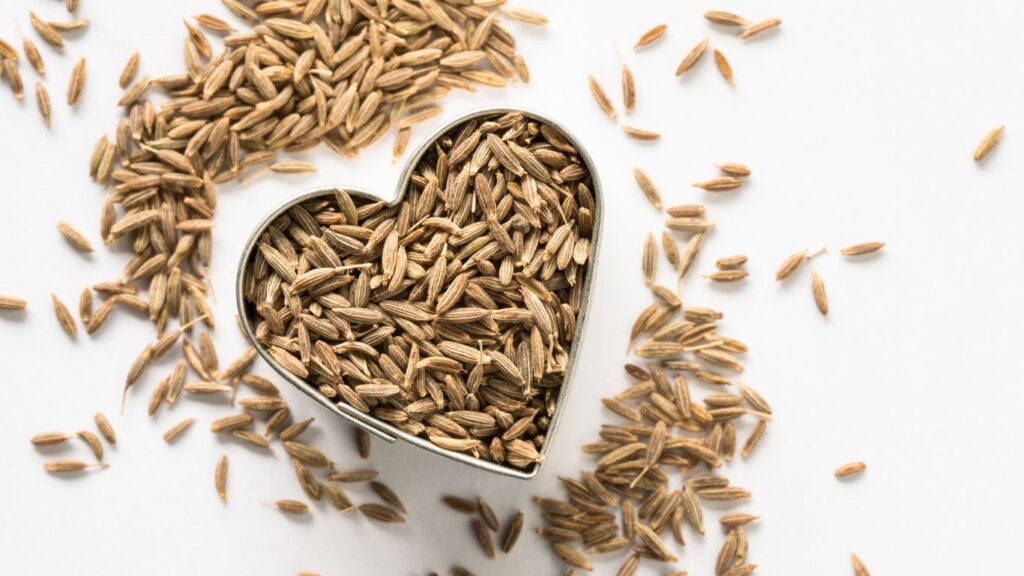Cumin seeds, a staple spice in many kitchens, have been revered for centuries not just for their distinct flavor but also for their remarkable health benefits. Rooted in ancient traditions, these tiny seeds are more than just a culinary delight; they are a bridge to a healthier life. This blog delves into the historical and cultural significance of cumin seeds in traditional medicine and how modern science supports their potential health benefits.
Cumin Seeds in Traditional Medicine: Ancient Wisdom for Modern Health
- The Historical Significance of Cumin
- Cumin in Ayurveda and Traditional Medicine
- Nutritional Profile of Cumin
- Digestive Health
- Immune System Booster
- Detoxification
- Anti-inflammatory and Antioxidant Properties
- Cumin and Weight Loss
- Cumin and Mental Health
- Incorporating Cumin into Your Diet
- Precautions and Considerations
- Conclusion
The Historical Significance of Cumin
Cumin has been used in various ancient civilizations, from the Egyptians who used it in the mummification process to the Greeks who kept it on the dining table as a common seasoning. In Ayurveda, an ancient Indian system of medicine, cumin is considered a vital spice for improving digestion and boosting the immune system. Similarly, in traditional Middle Eastern and North African cultures, cumin has been a go-to remedy for various ailments.
Cumin in Ayurveda and Traditional Medicine
In Ayurvedic medicine, cumin is known as ‘Jeera’ and is famous for its digestive, carminative, and detoxifying properties. It’s believed to balance the ‘Vata’ and ‘Kapha’ doshas (body energies), thereby improving digestion and metabolism. Traditional practitioners often recommend cumin water or tea for soothing digestive issues, promoting weight loss, and enhancing overall vitality.
Nutritional Profile of Cumin
Cumin is packed with a variety of nutrients that contribute to its health benefits. It’s an excellent source of iron, essential for energy production and immune function. Cumin also contains manganese, calcium, magnesium, phosphorous, and vitamins A, C, E, and B-complex. The presence of bioactive compounds such as terpenes, phenols, and flavonoids contributes to its antioxidant and anti-inflammatory properties.

Digestive Health
One of the most well-known benefits of cumin is its ability to aid in digestion. The compounds thymol and cumin aldehyde help activate salivary glands, which helps in the primary digestion of food. The spice also stimulates pancreatic enzymes, aiding nutrient absorption and promoting overall digestive health. Traditional remedies often include cumin for treating indigestion, bloating, and gas.
Immune System Booster
Cumin’s high vitamin C content makes it a potent immune system booster. Additionally, its antibacterial properties help fight off infections. In traditional practices, cumin was used to treat colds and asthma due to its expectorant properties, which help in relieving mucus and phlegm.
Detoxification
In traditional medicine, cumin was used as a detoxifying agent. Its essential oils, cuminaldehyde, and certain other components act as antioxidants, helping in the removal of toxins from the body. The regular inclusion of cumin in the diet is thought to facilitate the liver’s detoxification processes and promote overall well-being.
Anti-inflammatory and Antioxidant Properties
The modern study has revealed that cumin’s anti-inflammatory effects can help in managing conditions like arthritis and other inflammatory diseases. Its antioxidant properties protect the body from damage caused by free radicals, which are linked with aging and various diseases.

Cumin and Weight Loss
Traditional practitioners often recommended cumin to aid in weight loss. Modern research supports this, suggesting that consuming cumin can help improve weight loss efforts by accelerating metabolism and improving the body’s ability to burn fat.
Cumin and Mental Health
Emerging research suggests that cumin may also have benefits for mental health. Its neuroprotective properties may help improve memory and reduce stress. In traditional medicine, cumin was often prescribed to enhance mood and provide a calming effect.
Incorporating Cumin into Your Diet
Incorporating cumin into your diet is easy and beneficial. It can be added to spice mixes, used in marinades, or simply sprinkled over dishes for a flavor boost. Cumin tea is another excellent way to enjoy the benefits of this spice. Simply boil cumin seeds in water and let them steep to make a soothing tea.
Precautions and Considerations
While cumin is generally safe for most people, it’s important to consider potential allergies and interactions with medications. As with any supplement or herb, it’s best to consult with a healthcare provider before starting any new treatment, especially if you have a medical condition or are pregnant.

Conclusion
Cumin seeds, with their rich history in traditional medicine and a wide array of health benefits supported by modern science, are truly a testament to the wisdom of ancient cultures. By incorporating this ancient spice into your diet, you embrace a piece of historical wellness that continues to stand the test of time. Embrace the spice that not only adds flavor to your meals but also brings a multitude of health benefits to your life.
Also read: Scientific Studies Supporting Ayurveda
